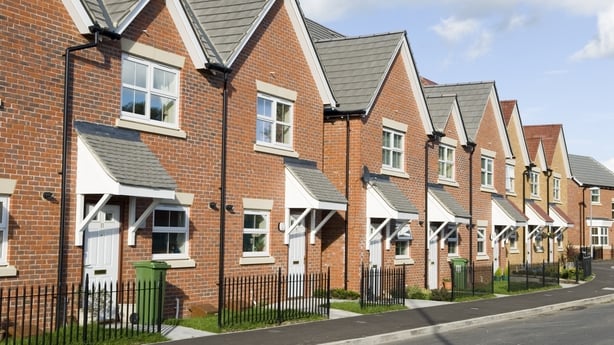Perhaps the only thing political parties can agree on in the General Election campaign is that the housing crisis is top of the agenda.
The first to outline its plans was Fine Gael with leader Simon Harris and housing spokesman Paschal Donohoe fronting a press conference.
Perhaps the most interesting aspect of the party's proposal is the target for home building.
The party expects 41,000 residential properties will be built next year and that figure will steadily increase to 60,000 in 2030.
To put that in perspective, the Central Bank estimates that if Ireland was to deal with the shortfall in housing and population growth over a decade, 70,000 homes annually would be required.
Almost 33,000 homes were built last year, so Fine Gael's forecast for 2025 is probably relatively realistic - although far short of what is required.
The party is also proposing to invest €10bn of the €14bn of Apple tax money into housing.
It is a shift from the policy of setting aside one-off windfalls and not using them for day-to-day spending as Simon Harris had stated in September.
The Central Bank has warned there is a scarcity of construction workers so it’s clearly much more complicated than simply ploughing money into the sector.
Asked about this at the press conference, Paschal Donohoe said Fine Gael planned to increase construction on a phased basis.
He said: "We are doing that to avoid piling a whole load of money into the economy in the first year of the plan ... and the people not being there to turn that into more homes."
He said the party wanted to expand apprenticeships to increase the pool of available workers for residential construction.

Fine Gael is also proposing to expand the Help to Buy scheme for first-time buyers.
This incentive allows purchasers to reclaim income tax they have paid over recent years from the Revenue Commissioners to help fund a deposit.
Under Fine Gael’s plan, the maximum amount buyers could reclaim would increase from the current €30,000 to €40,000.
There has been criticism of Help to Buy as experts fear by giving purchasers more money it only inflates property prices which are already rising quickly.
While Fine Gael is committed to expanding the scheme, it is worth noting that Sinn Féin has stated it would wind it down.
The other interesting aspect of Fine Gael’s plan is its commitment to expand the First Home Scheme to include second-hand houses.
Under this programme, the State takes a stake or a shareholding in a house or an apartment, to make it easier for the buyer to purchase a home.
Until now, it has been limited to first-time buyers of new properties.
Fine Gael has also promised to increase the tax credit for renters from €1,000 to €1,500.
Later this week, Sinn Féin and Fianna Fáil will launch their policies on the issue.
As the campaign intensifies, all of the parties know they will be asked searching questions on how they propose to fix the housing crisis.







